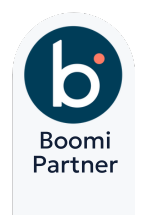Integrity and seamless connectivity are crucial. Utilizing data’s potential will help businesses innovate, run more efficiently, and gain a competitive edge. The Integration Platform as a Service (iPaaS) can be used in this situation. A cloud-based solution called iPaaS enables businesses to easily combine numerous apps and data sources from different cloud and on-premise locations. We’ll examine how your business may be transformed by iPaaS cloud data integration best practices in this blog.

The Core Functionality of iPaaS
At the heart of iPaaS lies its ability to seamlessly connect a multitude of systems, making data integration a breeze. Let’s break down the core functionality of iPaaS:
SaaS & On-Premise Apps
iPaaS provides a variety of pre-built connectors and APIs that enable seamless connection across various platforms. For example, prominent SaaS apps like as Salesforce, Workday, and HubSpot, as well as on-premise platforms such as SAP and Oracle, may be easily connected. Furthermore, iPaaS includes data mapping and transformation tools that enable you to map data fields between systems, assuring data compatibility and easy data transfer.
B2B Partners
Through secure APIs and data-sharing protocols, your external business partners, such as suppliers and customers, may effortlessly connect to your cloud data integration ecosystem. This enables improved collaboration, real-time data exchange, and faster communication with your partners.
Data Governance and Security
Beyond system integration, iPaaS provides robust data governance, security, and regular software updates. With advanced security features, including data encryption, access controls, and audit trails, you can safeguard your data against breaches and other security threats.
The Benefits of iPaaS
Now that we have a grasp of what iPaaS can do, let’s explore the concrete benefits it offers:
1. Simplified Integration
iPaaS provides pre-built connectors and APIs that simplify the integration process. This significantly reduces the need for complex custom coding, making integration accessible to a wider range of users within your organization.
2. Greater Agility and Scalability
Businesses today need to be agile and adaptable to changing market dynamics. iPaaS allows you to easily add new applications and services to your infrastructure. This scalability ensures you can swiftly respond to evolving business needs without the complexity of extensive development work.
3. Improved Collaboration
Efficient collaboration is a key driver of productivity. By integrating different systems and applications, iPaaS fosters improved collaboration among teams and external partners. This enhanced teamwork results in higher efficiency and productivity.
4. Better Data Management
Data is the lifeblood of modern organizations. iPaaS offers centralized data management and integration, making it easier to share and analyze data across different systems. This centralized approach leads to a more comprehensive and accurate understanding of your data.
5. Enhanced Security
Security is critical, and iPaaS does not skip it. Data encryption, access restrictions, and audit trails, among other sophisticated security features, help safeguard your data from breaches and other security risks. This guarantees that your data remains private and safe.
6. Lower Costs
The pre-built connectors and APIs provided by iPaaS significantly reduce the need for custom development and maintenance. This cost-saving aspect can have a significant impact on your organization’s bottom line.
7. Faster Time-to-Market
With iPaaS, you can quickly launch new applications. The simplified integration process and pre-built connectors streamline development, enabling your organization to bring new services and features to market faster.
Best Practices for Cloud Data Integration with iPaaS
To make the most of iPaaS and ensure a smooth transition to cloud data integration, consider the following best practices:
1. Define Clear Objectives
Before diving into cloud data integration, define your objectives. What do you want to achieve with iPaaS? Be specific about your goals, whether it’s streamlining processes, enhancing collaboration, or improving data visibility.
2. Conduct a Thorough Assessment
Perform a comprehensive assessment of your current data ecosystem. Understand the systems and data sources you need to integrate. Identify potential roadblocks and challenges that may arise during the integration process.
3. Select the Right iPaaS Provider
Choose an iPaaS provider that aligns with your organization’s needs and goals. Look for a provider with a strong track record, excellent customer support, and a robust set of pre-built connectors that suit your integration requirements.
4. Data Mapping and Transformation
Utilize the data mapping and transformation tools provided by iPaaS to ensure seamless data flow. Standardize data formats and fields to guarantee compatibility between systems.
5. Data Governance and Compliance
Implement a robust data governance strategy. Ensure compliance with data protection regulations and industry standards. This is crucial for maintaining the integrity and security of your data.
6. Test Rigorously
Thoroughly test the integration processes before deploying them in a live environment. Testing helps identify and resolve any issues or bottlenecks in the integration flow.
7. Train Your Team
Provide training to your team to ensure they can make the most of the iPaaS platform. Familiarity with the platform’s capabilities and features is essential for successful integration.
8. Monitor and Maintain
Continuous monitoring and maintenance are critical for the long-term success of your iPaaS integration. Regularly check for performance issues, data accuracy, and security vulnerabilities. Stay up to date with software updates and security patches.
Conclusion
Platform as a Service for Integration (iPaaS) is the foundation of contemporary data integration, providing a diverse, scalable, and secure means of integrating systems, applications, and data sources. By following the best practices indicated in this blog, you can fully realize the potential of iPaaS to expedite workflows, increase collaboration, and improve data management in your business. You’re not simply connecting systems when you use iPaaS; you’re integrating success into your company processes. Accept the iPaaS revolution and watch your company grow in the data-driven age.
RESKOM offers comprehensive iPaaS services to empower businesses with seamless cloud data integration. With a strong track record and a dedicated team of experts, RESKOM tailors iPaaS solutions to individual needs, ensuring efficient data management, enhanced collaboration, and secure connectivity for your organization.


